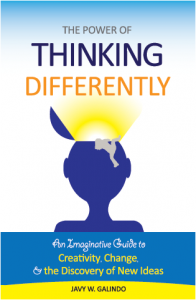“Ask yourself whether you are happy and you cease to be so.”
This quote from John Stuart Mill can be found from in Autobiography. Below are more quotes by John Stuart Mill, including a larger excerpt that contains the above quote.
Quotes from John Stuart Mill’s Autobiography
“Those only are happy (I thought) who have their minds fixed on some object other than their own happiness; on the happiness of others, on the improvement of mankind, even on some art or pursuit, followed not as a means, but as itself an ideal end. Aiming thus at something else, they find happiness by the way. The enjoyments of life (such was now my theory) are sufficient to make it a pleasant thing, when they are taken en passant, without being made a principal object. Once make them so, and they are immediately felt to be insufficient. They will not bear a scrutinizing examination. Ask yourself whether you are happy, and you cease to be so. The only chance is to treat, not happiness, but some end external to it, as the purpose of life. Let your self-consciousness, your scrutiny, your self-interrogation, exhaust themselves on that; and if otherwise fortunately circumstanced you will inhale happiness with the air you breathe, without dwelling on it or thinking about it, without either forestalling it in imagination, or putting it to flight by fatal questioning.”
Quotes from John Stuart Mill’s On Liberty
“The only way in which a human being can make some approach to knowing the whole of a subject, is by hearing what can be said about it by persons of every variety of opinion, and studying all modes in which it can be looked at by every character of mind. No wise man ever acquired his wisdom in any mode but this; nor is it in the nature of human intellect to become wise in any other manner.”
“Truth gains more even by the errors of one who, with due study and preparation, thinks for himself, than by the true opinions of those who only hold them because they do not suffer themselves to think…”
“It’s hardly possible to overstate the value, in the present state of human improvement, of placing human beings in contact with other persons dissimilar to themselves, and with modes of thought and action unlike those with which they are familiar. Such communication has always been… one of the primary sources of progress. ”





